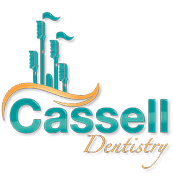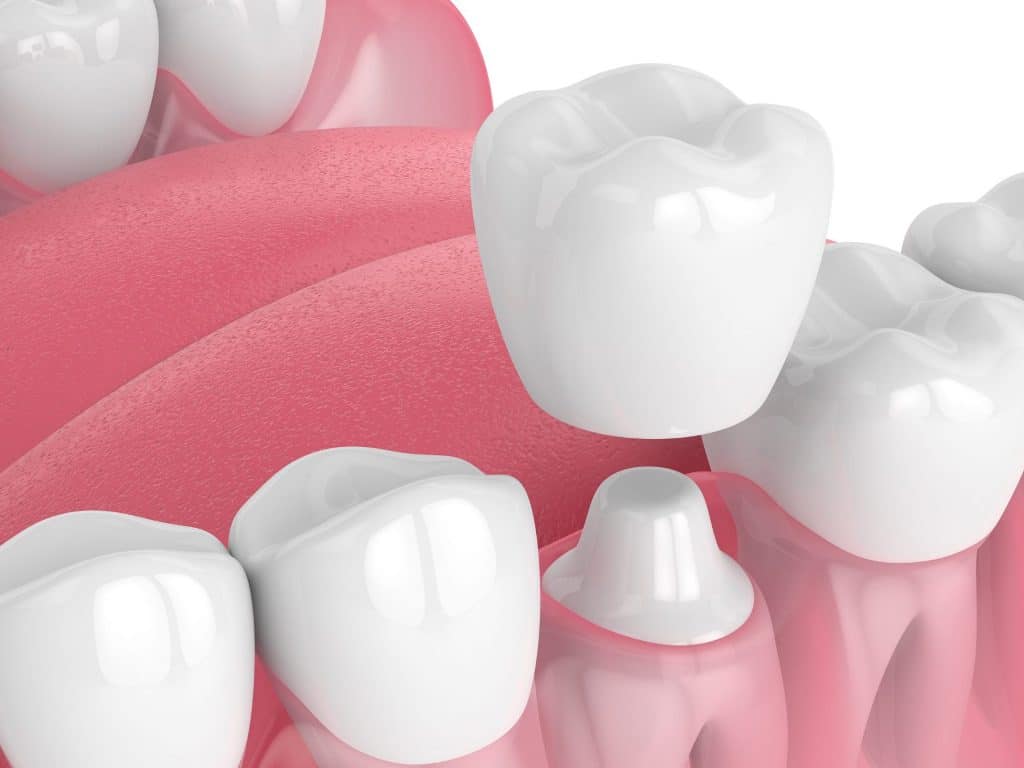What Type of Dental Crown Should I Choose? 5 Main Types
Anyone who has ever damaged or lost a tooth knows how painful, uncomfortable, and embarrassing it can be. You don’t just lose your ability to chew and speak properly…you lose your ability to smile comfortably, and your self-confidence inevitably suffers. If you’re one of these people, you should consider restorative dentistry as a possible solution.
Restorative dentistry allows people with broken, cracked, decayed, or missing teeth to regain their smile and the functionality of their teeth through a number of different methods. Fillings, inlays, onlays, crowns, bridges, and implants all serve similar yet slightly different purposes in restoring the form and function of damaged teeth.
If your tooth is significantly broken or decayed but still maintains some of its structure, the best restorative dental solution for you is likely a crown. Crowns serve as a protective cover for your damaged tooth, and they are designed to look like a real tooth.
If you believe that you’re in need of dental crowns in San Diego, read on to learn everything you need to know about the ways that this incredible dental restoration service can save your smile.
What Are Dental Crowns?
Dental crowns, otherwise known as dental caps, are a type of prosthetic device that is designed to imitate the look, feel, and function of a natural tooth. They are custom-designed to fit perfectly over the damaged tooth like a cap in order to strengthen the tooth and restore its appearance.
When you receive a crown, your damaged tooth is filed down to make room for the prosthetic. Then, an impression of the tooth is created and sent to a dental lab for the crown to be fabricated. Next, you will receive a temporary crown until the permanent one has been created. Finally, once the prosthetic has been created, you will return to your dentist to have the temporary one removed and the permanent one fitted and cemented into place.
When Would I Need a Crown?
When you go to a dental clinic in San Diego for a consultation, they will examine your damaged tooth and offer possible solutions.
Your dentist may suggest a dental crown to:
- Protect a damaged, decayed, or weak tooth
- Strengthen a tooth with a filling in it
- Support a cracked tooth
- Protect a dental implant or a tooth that has undergone a root canal
- Support a dental bridge
Depending on your unique situation, your dentist can help you to find the right crown to support your oral health needs.
What Are Crowns Made From?
Dental crowns are made from a variety of different materials, each of which has its own advantages and disadvantages. When you ask your dentist about dental crowns near you, they’re likely to ask you which material you prefer. The answer to that question will rely mostly on preference, but there are also some other important factors to consider.
Stainless Steel
Stainless steel is typically used for the temporary crown that you will receive while your permanent one is being fabricated in a dental lab. Temporary crowns are intended to protect the exposed tooth that has been filed down in order for the permanent cap to fit.
Stainless steel is also used as a material for temporary crowns placed on the baby teeth of children. This is done because the tooth will inevitably fall out, so a more permanent fixture is unnecessary.
Metal
Various metals can be used in the fabrication of dental crowns. These materials make for the strongest type of crown that won’t fracture or wear down your surrounding natural teeth. They are typically made from a combination of metals such as gold, silver, platinum, copper, nickel-chromium, cobalt-chromium, and other metal alloys.
Because they do not mimic the look of natural teeth and because they are so strong, metal crowns are typically used to restore the function of damaged molars. When it comes to replacing teeth for cosmetic purposes, however, these crowns are most likely not what you’re looking for. Metal allergies are also something to consider when deciding upon this type of dental crown.
Full Porcelain
Porcelain or ceramic materials can be used to create a dental crown that more accurately mimics the natural look of a tooth. Porcelain crowns are an ideal choice for restoring damaged front teeth. With the opportunity to custom-design the crown, your new smile can be brighter and more aesthetically pleasing than ever before.
However, these crowns are not as strong as crowns made of metal and can be prone to chipping. They can also wear away at adjacent teeth. They’re still rather durable, often lasting around 15 years when properly cared for, but their durability in comparison to other materials is still something to consider.
Porcelain fused to metal
Porcelain fused to metal (PFM) crowns are designed to combine the best attributes from porcelain and metal crowns together. They have the strength of metal and the natural look of porcelain, making them a very popular choice. Although PFM crowns are highly durable, the porcelain surface can still chip and cause surrounding teeth to fracture and wear down.
Full Resin
For a more affordable dental crown, some people choose restorations that are made of composite resin. Resin crowns are very affordable and accurately simulate the look of your other teeth much better than metal, but they are also significantly less durable than other crown materials.
Which Material is Best for Me?
Now that you know the different types of dental crown materials you can choose from, you should have a better idea of which one might be best suited to your needs. The main differences are price, durability, and appearance.
Outside of the amount of money that you’re willing to spend and any allergies you may have, the rest is a matter of opinion. If you need any help deciding, reach out to a dental office near you. They would be glad to answer your questions about dental crowns.
Looking for a Dentist in San Diego?
If you’re interested in learning more about dental crowns, contact Cassell Dentistry or call (619) 431-3323 for the best dentist 92108 has to offer!

